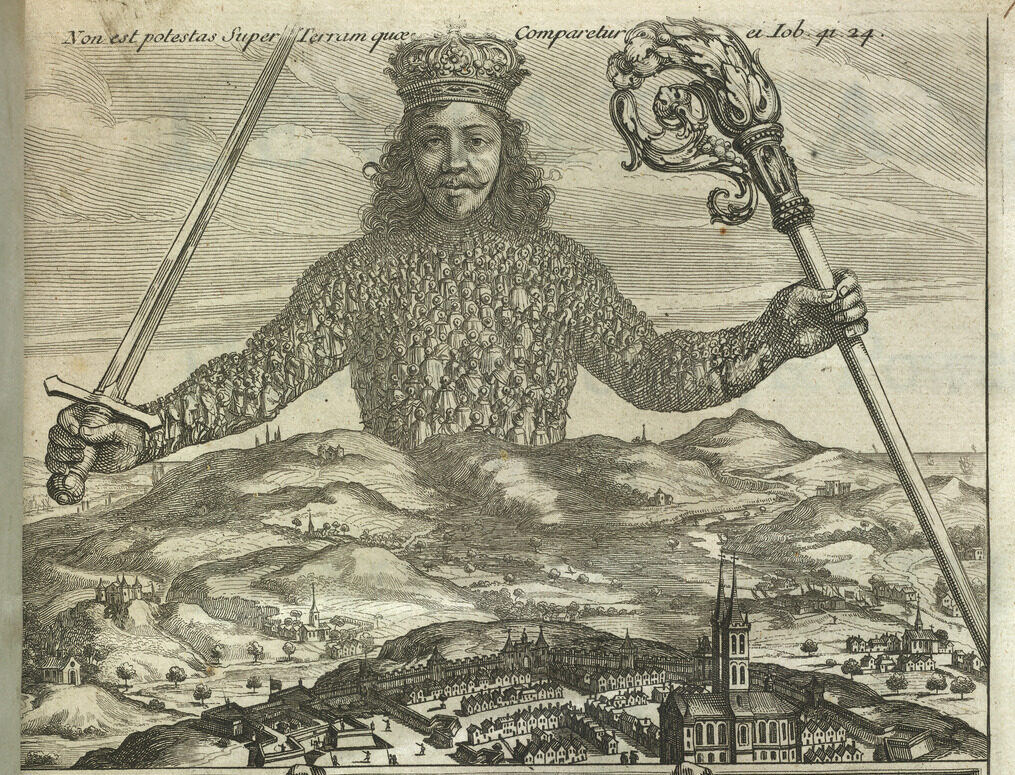The world as it is or as we would like it to be?

05/02/2021
The restoration of realism at the heart of old Europe, perhaps even more so in Catalonia, is not an easy task. Fundamentally, the difficulty lies in the prevailing idealist account in approaching the actual disputes that govern global dynamics. The Realist School does not ask herself “how we would like the world to be,” but tries to observe and analyze it “as it is.” Such an account might certainly be disappointing or even be unpleasant for those who seek absolute truths and final solutions to humanity’s ills.
We face challenging times, marked by great convulsions, uncertainties, and transformations – although, hasn’t life always been this way? Indeed, many would prefer to find easy answers that would ideally fit in with what they believe should be the reality of the world we live in. From a tailor-made framework, they would accuse realists of enjoying conflicts rather than solve them, of embracing contemplative pessimism, disregarding themselves of the duty of working towards a horizon of universal peace.
The realist position has been accustomed to this kind of criticism since the foundation of its Classical school, with E.H. Carr and Hans J. Morgenthau. Even earlier, if we go to the philosophical roots of realism, which we might identify in the thought of Thomas Hobbes (17th century), we can find similar reticence. In this fashion, possibly the most famous critique of the philosopher of Malmesbury is that of Bishop John Bramhall in his work “The catching of Leviathan or the great whale.” Among his criticism, perhaps one of the least known is precisely that making reference to Hobbes’ understanding of international relations.
Bramhall warns of the danger of the Hobbesian view to the attainment of international peace. If commonwealths were to find themselves in the same conditions of War of all against all that Hobbes infers between individuals in conditions of mere nature, there would be no place for confederations; nor would declarations of War have any meaning; there would never be confidence in oaths or in the word given by other sovereigns, opening “dangerously the door to extreme war”. Note, however, that Bishop Bramhall is not so much criticizing Hobbes’ reasoning’s soundness, but the consequences of his conclusions.
The question that needs to be asked here is: is it Hobbes who, through his analysis, would open the door to War, or is it War that would open the door to Hobbes’ interpretation of the world? When Bramhall spoke of “extreme war,” he could not have imagined (even in his worst nightmares) the degree of violence and lethality that would result from the world wars of the 20th century; nor could he have imagined the lethality that would result from nuclear weapons or modern military technology. However, it would be as far-fetched to blame Hobbes – and Hobbesian realists – for having opened the door to War as it would be to accuse Albert Einstein of having made possible the nuclear bombings of Hiroshima and Nagasaki.
Hobbes did not lay the groundwork for justifying external wars. He described reality as he inferred it from his own experience, even though this blurred the normative prism of the scholars of his time and the later idealists. One only has to try to trace the history of humankind to realize that there have never been any conditions of absence of conflict among polities sufficiently durable to be properly called “peace”. That is, beyond wars in act (i.e., actual violence), War has always had a potential character, in the absence of the mechanisms that would allow the achievement of perpetual peace, as Immanuel Kant called it. We should rather speak of more or less prolonged armistices, but not of peace.
Hannah Arendt’s imputation to Hobbes, whom she considers a precursor of imperialism, is inconsistent. There is no moral or normative judgment to be derived from the explanation that sovereign powers relate to each other through conflict while acting in their own interests, primarily in the pursuit of self-preservation. In other words: Hobbes never says that this is good; although he admits that it is to be considered just and licit, insofar as each sovereign is free to do what he deems fit to avoid being destroyed by an enemy, either by defending himself or by anticipating his attack.
However, to the extent that this dynamic engenders War, and for Hobbes, the condition of War is the worst of mankind’s evils, his aim is not to encourage it but to seek the political mechanisms that will bring about a state of a lasting armistice:
“Whatsoever therefore is consequent to a time of Warre, where every man is Enemy to every man; the same is consequent to the time, wherein men live without other security, than what their own strength, and their own invention shall furnish them withall. In such condition, there is no place for Industry; because the fruit thereof is uncertain: and consequently no culture of the Earth; no Navigation, nor use of the commodities that may be imported by Sea; no commodious Building; no Instruments of moving, and removing such things as require much force; no Knowledge of the face of the Earth; no account of Time; no Arts; no Letters; no Society; and which is worst of all, continuall feare, and danger of violent death; And the life of man, solitary, poor, nasty, brutish, and short.” (Lev, p.192)
Moreover, we should hereto interpose the rigorous textual analysis of Noel Malcolm, one of Hobbes’s great contemporary interpreters and editors. From his point of view, we should rethink this direct analogy between the behavior of the natural persona (i.e., the human being) and the artificial persona (i.e., commonwealth or republic), through which the passages in which Hobbes refers to international relations have traditionally been interpreted. However, even more, interesting is to rethink the conditions of individual isolation and dissociation that have often been attributed to the state in which individuals, lacking a common power, would hypothetically live: in the state nature.
Here, a fertile interpretative debate is evident, which, although it is not the intention of these lines to deal with it, allows us to point out that the most traditional readings of Hobbes’ philosophy are not free of controversy. Likewise, we are shown certain parallelism (or continuity?) between Hobbes’ criticism and those directed at classical realism, which, at present, we can consider perfectly valid. In both cases, the common denominator consists of confusing the perspective of analysis (based on the facts’ reality) with the neglect of the normative, moral, political, or other questions that may arise.
Realism, however, does not wash its hands off -as neither did Hobbes- but tries to clearly delimit the game board before proposing which is the most convenient movement of pieces. From there, we can find multiple proposals for moves, both coinciding and diverging, according to the interests of each of the players, but which, in all cases, will start from the same premise: that, if we want to undertake real moves, we must understand the reality in which we have to move.
Catalonia in October of 2017 offers a paradigmatic case of how the weight of reality cannot be scaped. That is an extended topic, of which here we are going to focus on the dimension of the international reactions to illustrate our point. First, the EU and practically all international organizations failed to censure the Spanish repression perpetrated against the Catalan people before, during, and after the referendum.
Second, even less support was given to the 27-O declaration of independence, leaving aside the lack of will to implement it. Nor was there support from those from whom the Catalans would most wish to obtain it Western liberal democracies – in whom the Catalan political class mirrors itself – or from those countries that have their own right to self-determination contested.
The problem then lies in the difficulty of navigating reality without realism. This does not deny the possibility that everyone may opt for the political, social, and economic model that suits them. Nor does it preclude the solidarity action that everyone may undertake collectively, in favor of the just causes of other nations and peoples of the world. The fact is that the actors with whom Catalonia wants to be on a par – or those admired for their struggle for national liberation – if they are where they are, it is precisely because they have pursued a realist strategical approach at some point in time.
In order to learn how one’s actions can condition the actions of others, first, one needs to try to understand the interests, needs, and positions of international actors, as well as the functioning of their relations, friendships, and enmities. Internationalizing one’s cause not only consists of mediatizing it among public opinion but also (and above all) managing to place it on other states and international organizations’ political agendas.
This will undoubtedly entail assuming compromises, being open to talking about everything and with everyone, and understanding that any political strategy must be articulated in the real world and not in the world of ideas. In this sense, a realist view of international relations is an essential interpretative framework for understanding the world and intervening in it. It is a tool that must be cleansed of prejudices and the anathematization that idealism has made of it to be able to take the first two necessary steps before thinking about how to provoke movements on other actors: to know one’s own conditions of existence and to know what can be done to begin to exist effectively.


